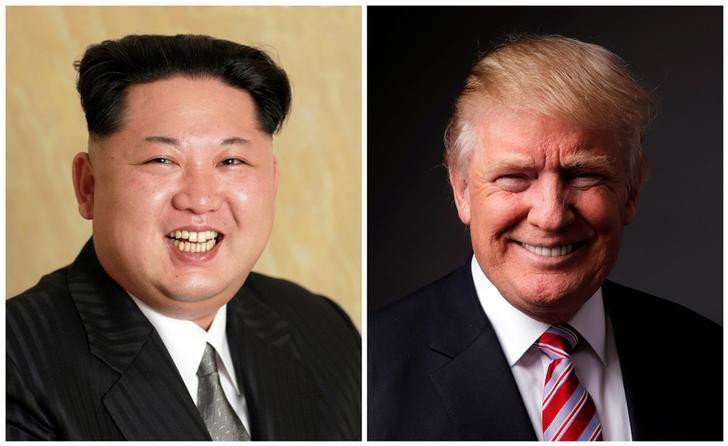
The United States and North Korea will seek a common understanding of what denuclearisation means when President Donald Trump presses Kim Jong Un next week to give up all of the North's nuclear weapons, U.S. officials said on Thursday.
Trump and Kim are set to meet in Vietnam for their second summit in an effort to thaw relations between the former foes and reduce one of the world's biggest nuclear threats.
U.S. officials have downplayed expectations for the meeting, and Trump has made clear he does not expect it to be his last with Kim, a dictator he once derided as "little rocket man" but now considers a partner with whom he can work.
Critics have said Trump gave Kim too much simply by meeting with him in Singapore last year. That criticism may be levied again for the Vietnam summit.
But the U.S. officials said the United States remained focused on getting the North Korean leader to denuclearize, even if he had not made that decision himself so far.
"I don't know if North Korea has made the choice yet to denuclearize, but the reason why we're engaged in this is because we believe there is a possibility," one official said.
The two sides have not agreed previously on what denuclearisation means.
Kim agreed in Singapore to work towards the denuclearisation of the Korean peninsula, which could be taken to include removal of the U.S. nuclear umbrella for South Korea and nuclear-capable forces, while the United States has been demanding that North Korea give up all of its nuclear and missile programs.
"It is ultimately about the denuclearisation of North Korea. That was what was agreed between the two sides and that is the overriding goal that President Trump is seeking to achieve with this summit. This is an important step towards that ultimate goal," the official said.
He said the United States would press for a freeze on all weapons of mass destruction and missile programs and a "roadmap" to set expectations for negotiations.
The two sides are not discussing the removal of U.S. troops from South Korea, however. The United States keeps some 28,500 troops in South Korea.
Asked whether Trump was open to withdrawing all U.S. troops from the Korean peninsula for a peace treaty that would formally end the war, a second official said that was "not the subject of discussions."
The officials noted that punishing U.S. sanctions would remain in place to give North Korea an incentive to move.
Trump's national security adviser John Bolton is travelling to South Korea for consultations with South Korean officials ahead of the Hanoi summit, a senior White House official said.
U.S. special representative for North Korea Stephen Biegun is already there, negotiating with North Korean officials ahead of the summit.
The two sides are seeking to build the goals outlined in a joint statement from the Singapore meeting to recast relations between the United States and North Korea, establish peace on the peninsula, denuclearize, and return the remains of those missing or killed in action during the Korean War.









